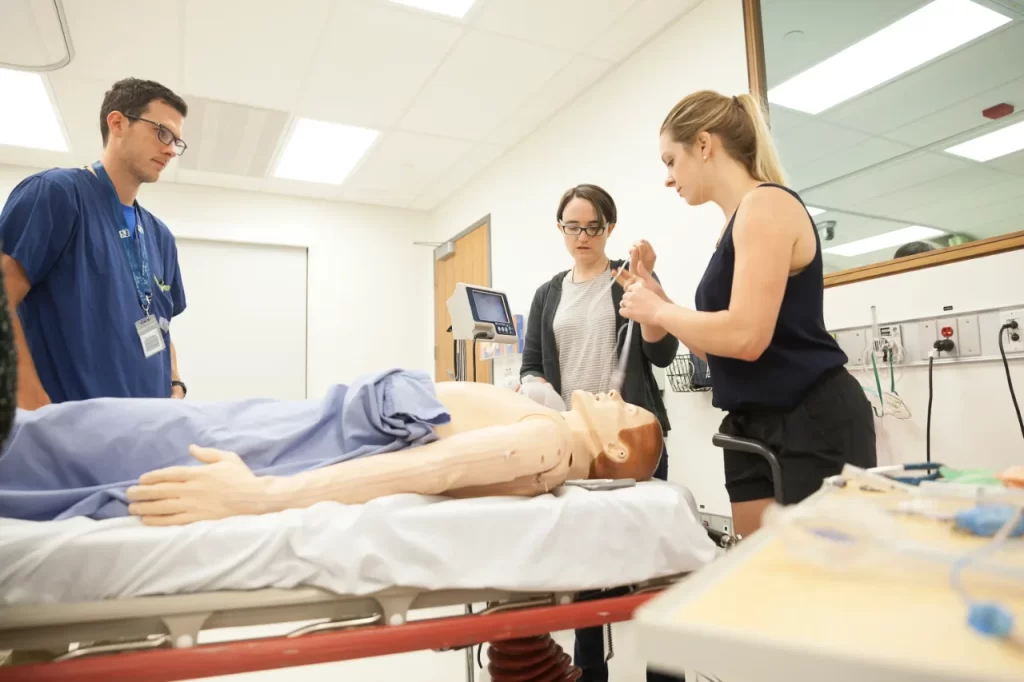MedicalAlertBuyersGuide.org is an independent review site. We may earn money when you click on links on our site. Learn More
Home Healthcare Workers Are In Drastically Short Supply: AI Can Help
According to the AARP, over three-quarters of adults 50 and up want to age in place, not in a retirement community or assisted living facility. This population is making senior-friendly renovations and building their healthcare team. Unfortunately, older adults are finding that one vital piece of the puzzle is missing. Where are all the home care workers?
There’s a high demand for this worker, and it’s projected to grow. Right now, 16.8% of the US population is aged 65 and up. There are currently 600,000 annual job openings for home-care workers, and employment in that field is growing at a stunning 32.6% per year.
Even so, while the demand is there, the supply isn’t. Over a quarter of home care providers are turning down new cases. They simply don’t have enough staff to meet the need. Many of them are also scaling back on vital services like housekeeping tasks. Why aren’t these jobs being filled? What can modern and future technology do about this problem?
Why Aren’t There Enough Home Care Workers?
Home care agencies haunt job boards, practically begging for applicants. Unfortunately, the few they do attract often leave the field within three months. What’s happening here?
Low Pay

Home care workers are chronically underpaid. In fact, some earn less than they would at a fast-food position. Unfortunately, many of these agencies’ clients are on Medicaid. Medicaid has been drastically reduced in many states. Reimbursement can be just $13 an hour, limiting the wage potential.
Long Hours and Hard Work

The job can sometimes require care workers to go to very remote areas. Even locally, working days stretch even longer when you add up the driving time. The job itself ranges from light help to intensive support. It also requires many soft skills, such as communicating with highly emotional family members.
Too Many Clients, Not Enough Staff
The home care agencies face a circular problem. Staff that are juggling too many clients suffer burnout and leave the field. This increases pressure on remaining care workers, who in turn burn out faster.
The problem is heightened by a shift in the job pool. At one time, over a quarter of care workers were born outside of the USA. Now there’s reduced opportunity for immigration and work visas. Home care agencies are forced to turn to digital job boards for staff. These job board recruits have a particularly high turnover rate.
Poor Perception in the Workforce
Home care is often seen as the bottom tier of the healthcare industry. However, in some ways, it’s the most important part. Home care workers spend more one-on-one time with seniors than doctors or nurses. They make it possible for these people to keep their independence and stay at home, not in an overburdened hospital. Care workers also offer vital relief to overwhelmed family caregivers.
Where AI Fits Into the Home Care Puzzle

Many agencies are turning to this tech to streamline scheduling. In the blink of an eye, it can juggle complex interlocking schedules, update records, and more. When it handles time-consuming paperwork, workers are freed up for other tasks.
An AI program could also help boost retention during those critical first 90 days. It can promptly answer common questions the new hire has. The program is always available, just a quick call or internet search away. It may also be used to connect people to more experienced hires who can consult on any problems that crop up.
Finally, care workers use many tools when they’re helping a senior. AI-powered devices will likely take a top spot in their toolbox. These devices may be able to sterilize health equipment, clean the home faster, or suggest meals that work with complex dietary restrictions. The tech handles the harder tasks, leaving the care worker to deal with the rest. Lightening the workload can make this job more appealing to the potential care workers who are so badly needed.

